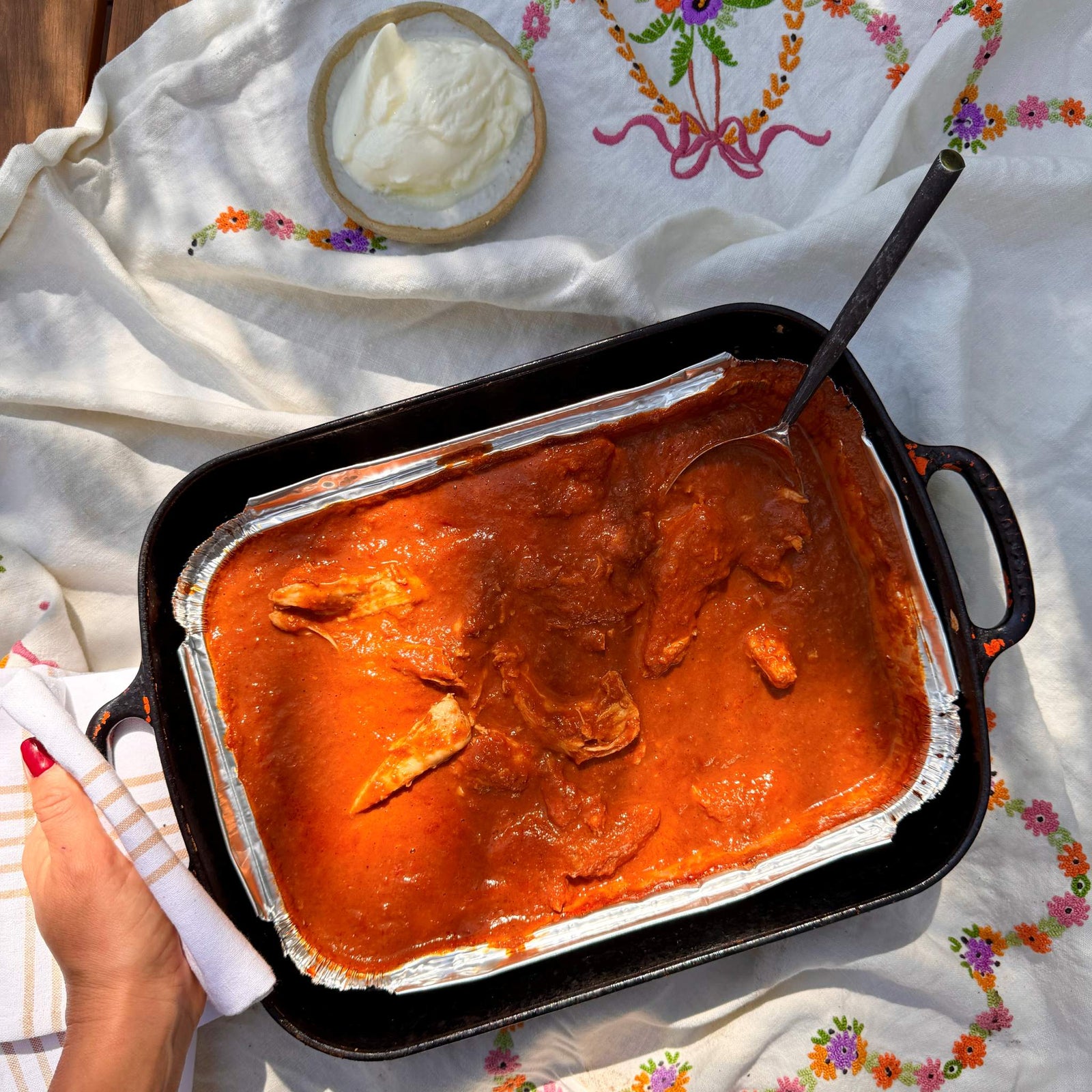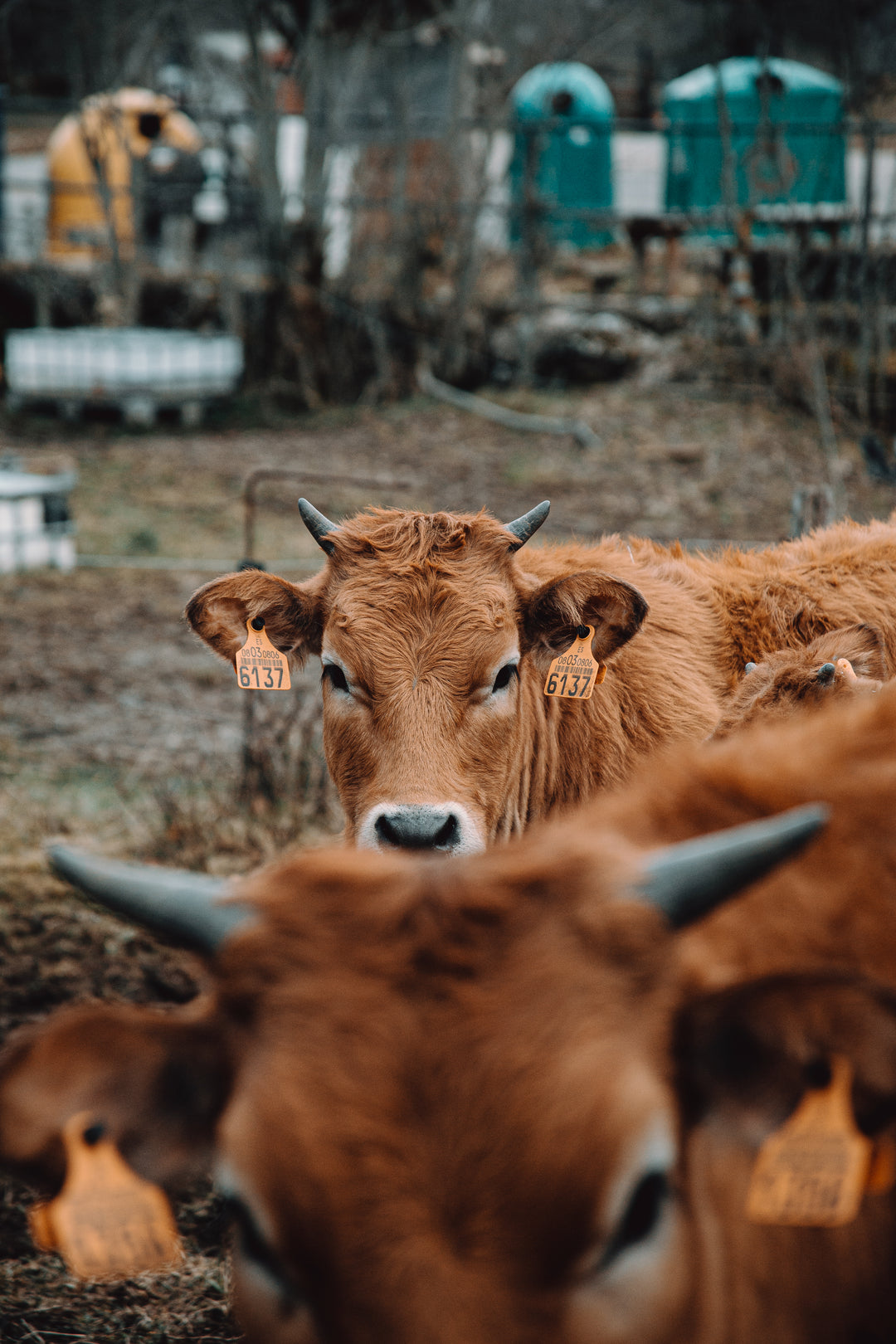Let's Talk About that dreaded Glyphosate
Hello,
Matilda here.
I know many you reading probably have kids pulling at you and needing your attentions so I'll keep this short and leave you with just enough info to understand why exactly its important for our health and our planet's health so steer clear of the harmful and toxic weed killer, Glyphosate.
Unless you're knee deep into Organics, Regen or you're a farmer, you probably haven't heard of Glyphosate. So I feel it's my duty to inform you. My mother talks about it all the time as 'the devil'. When you look at the comparisons of fields or farm lands that uses Glyphosate or Roundup, verses the ones that don't, it very clear the damage that this weed sprayer is having on our soil, our planet and our health.

This is a field showing the contrast between the orange-gold colouration that is characteristic of vegetation that has been sprayed with Roundup herbicide (Glyphosate) and an unsprayed area of the same pasture, green with spring growth. Herbicides such as Roundup are frequently used to enable quick, weed-free crop change-overs with minimum tillage

Workers spraying a wheat fields with Glyphosate. And below, the damage to our soil from it.

Perhaps most obvious is the difference between a regen farm and industrial farm. Look at this image from the doco Kiss The Ground.

Glyphosate is a chemical compound that works as an effective herbicide, or weed killer. It's the most commonly used herbicide chemical in the world, according to a 2016 study in the journal Environmental Sciences Europe. Glyphosate may be sprayed anywhere there are unwanted plants — from commercial farms to private backyards.
Its usage has exponentially increased in the last 20-30 years with the introduction of crops which are genetically-modified to be unharmed by glyphosate and the related introduction of more intensive usages of glyphosate. Glyphosate-resistant crops are, in fact, generally known as Roundup Ready® seeds.
Roundup took off in popularity when Monsanto began to sell "Roundup-ready" crops in 1996. These plants, which included soybeans and corn, are genetically modified to survive being sprayed with Roundup. Between 1995 and 2014, global glyphosate use grew 12-fold, according to the 2016 study published in Environmental Sciences Europe. Monsanto's patent on glyphosate expired in 2000, making the product available for other companies to sell. Today, there are hundreds of glyphosate herbicides on the market.
After the WHO called glyphosate "probably carcinogenic to humans" in 2016, people with NHL started filing lawsuits against Monsanto, and later Bayer, attributing their cancer to Roundup. Tens of thousands of people have since filed lawsuits against Bayer over Roundup. The first Roundup cancer case to make it to trial was brought by a California school district groundskeeper named Dewayne Johnson in 2018. Johnson was awarded $289 million in damages and the award was reduced to $20.4 million through appeals, according to Baum Hedlund Law, the law office that represented Johnson.
So, what can we do to avoid it?
Well, here are somethings you can do immediately.
- If you go to your farmers market, ask the person you're buying from if thy use spray on their fruit and vegetables. Berries are the worst! Try to always buy regen or Organic berries.
- You can shop for organics whenever possible. Obviously that's not always possible and more expensive but think about how much you're investing in your healthy, and bad health cost money!
- You can ask your butcher if they can stock regenerative meat. Regen farmers HATE roundup / Glyphosate because they know it absolutely destroys the soil. It's the antithesis of what they are trying to do, which is repair the land.
- You can start a veggie patch and grow your own food - if you have the space of course :)
- You can try not to eat GMO or highly processed foods.
Okay, I have a small child clawing at me. Got to go. Hope you got something from that!
Once again, thanks for supporting Regen Farming and The Good Farm Shop!
Most of this information was taken from https://www.livescience.com/glyphosate-round-up.html
Feel free to read the full article there.
Additional resources:
- Find answers to frequently asked questions about glyphosate from the U.S. FDA.
- Here are a few general facts about glyphosate, from the National Pesticide Information Center.
- Read more about the debate over the safety of glyphosate, from Frontiers in Public Health.




















Leave a comment